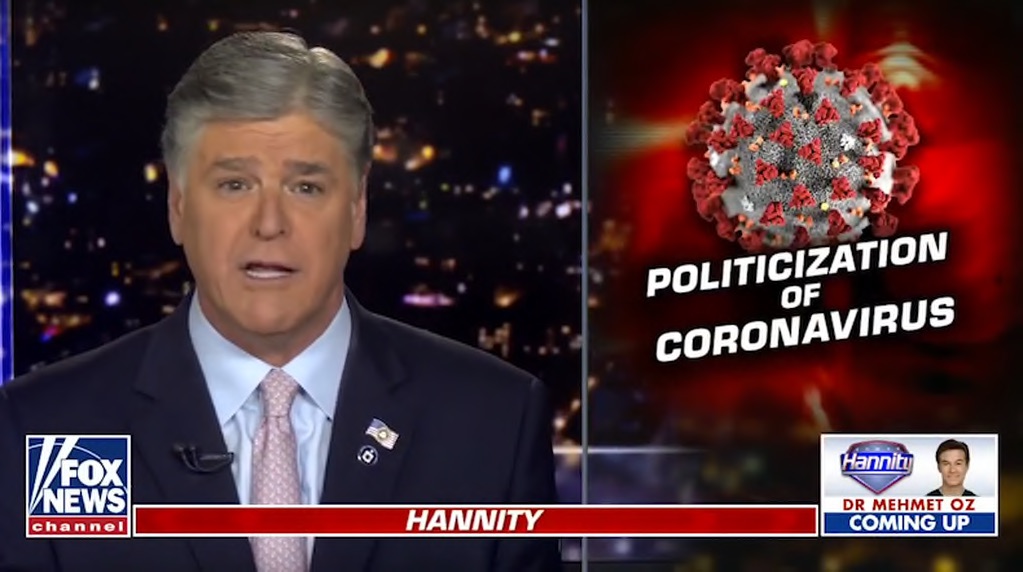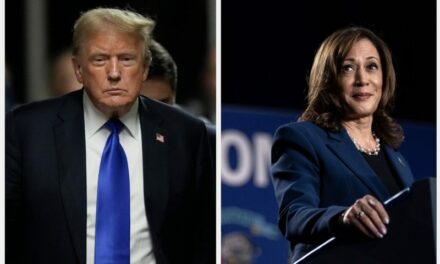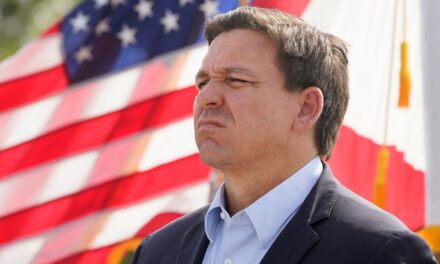I think Greg Sargent does a good job of characterizing what we’ve witnessed from President Trump and his media sycophants so far with respect to the coronavirus outbreak:
The Post reports that Trump propagandists like Sean Hannity have stampeded in herd-like fashion from initially attacking the media for supposedly hyping coronavirus to claiming its dire nature actually displays Trump’s heroism.
Such attacks on the media have been central to the broader project of protecting Trump’s reelection chances at all costs. First Trump and his propagandists accused the media of exaggerating the threat to protect his initial instinct to downplay it himself, all to avoid rattling the markets, to buoy his reelection hopes.
Then, when it became obvious the crisis was very serious indeed, Trump attacked the media to discredit its aggressive reporting on his failure to respond to it competently and with urgency. And now, Trump’s propagandists are supplanting that reporting with their own narrative — one in which the very same crisis they previously downplayed now showcases Trump’s decisive and “bold” leadership.
We’re facing a pandemic but it’s still a presidential election year. We shouldn’t expect the Republicans and Democrats to put politics completely aside. This is only a problem if it begins to affect public heath. That’s been the case from the beginning with the White House, and that’s why their allies need to go into overdrive now to compensate for Trump’s catastrophic errors in judgment. Maybe they’ll convince some people that Trump deserves a 10 out of 10 grade, as he claimed in a recent press conference.
The bigger concern is that people won’t listen and follow instructions when they’re provided solid and necessary advice. Trump destroyed his own credibility, but he and his allies have also done great and mostly unwarranted damage to the credibility of scientific experts and credible media outlets. At this point, a new NPR, PBS News Hour and Marist poll shows that 47 percent of the public doesn’t trust what they hear about the viral outbreak from the media. That’s still considerably better than the 37 percent who express confidence in what Trump says, but it’s not good enough to assure wide cooperation with authorities.
Part of the problem is that many conservatives tune out when they hear criticism of the president. They think the media has it out for him and they’re using this crisis to damage his reelection prospects. Some of this would happen with any president in any presidential election year, but it’s magnified in this case because Trump has been deflecting legitimate criticism by talking about a biased media and “Fake News” for the entirety of his term in office. Likewise, the administration’s efforts to protect the fossil fuel industry have led them to discount scientific opinion, and that carries over now to conservatives who have been primed to doubt expert advice.
The crash in the stock market is hard to ignore, however, and soon hospitals will fill to overflowing and unemployment will rise, and these events will challenge any effort to cast Trump as some hero who had handled this crisis in a competent fashion.
There will never come a point in 2020 in which these points are conceded on the right. They have too much at stake in the presidential election to join the critics of Trump prior to him leaving office. At the same time, the Democrats will never give Trump a pass in the interest of national unity in a time of crisis. They, too, have too much at stake.
As a result, we’re stuck with a situation where critically important information has trouble getting through because it is being filtered through a political lens. Even basic facts about what has already occurred are distorted though efforts to defend or even celebrate Trump’s performance. In some cases the criticism will even go too far because there’s an advantage to the left in being uncharitable.
The truth is that we need a new president, and unfortunately we also need the president we have to do a better job while we’re in the process of replacing him. This is not ideal, and it creates an additional challenge for responsible leaders who need to find a way to get good information to people and have it be heeded by folks who just don’t trust anyone to give them advice that isn’t tinged with a political motive.






